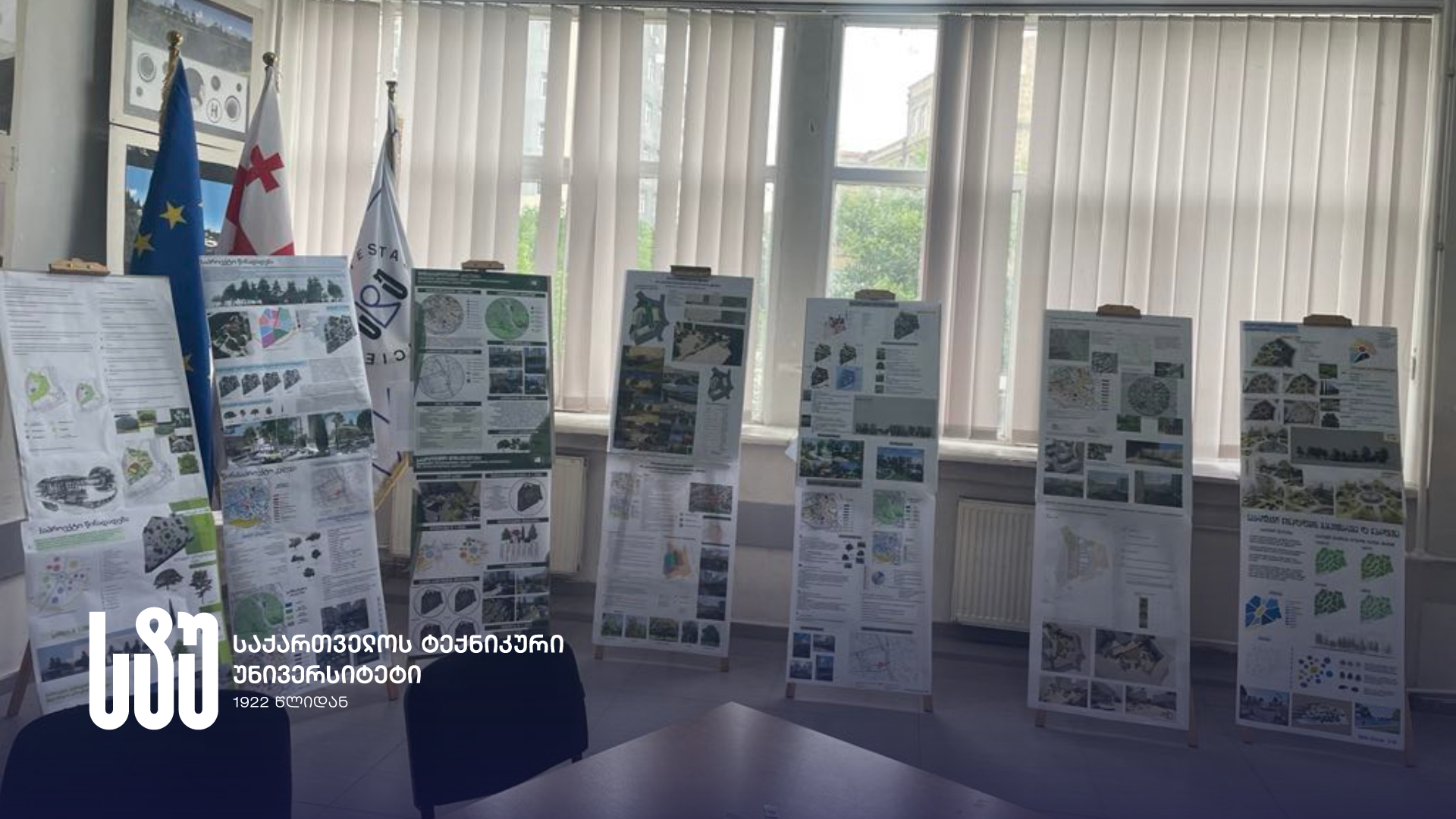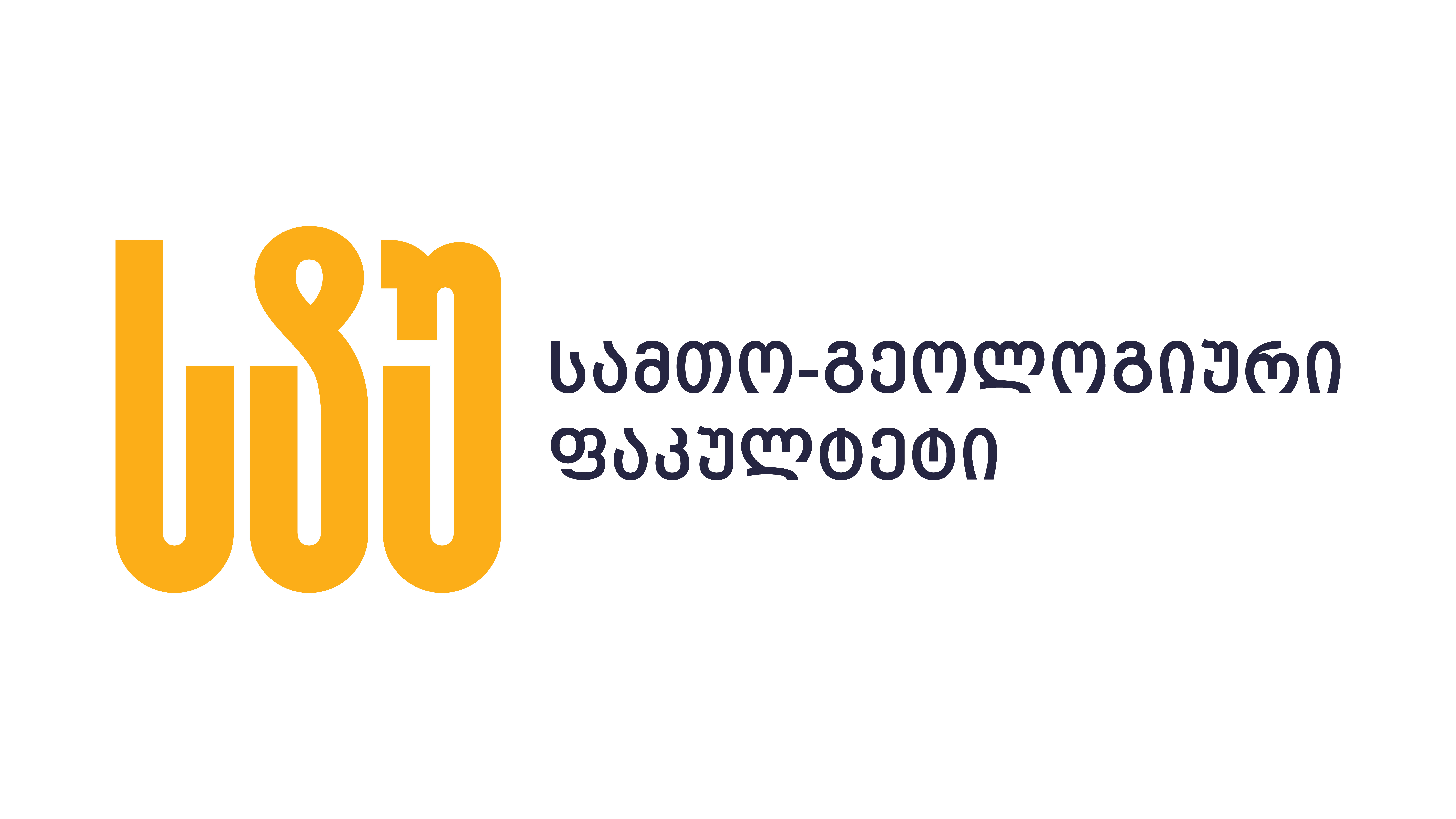A plenary discussion on the relevance of intellectual property management was held at GTU
16-06-2024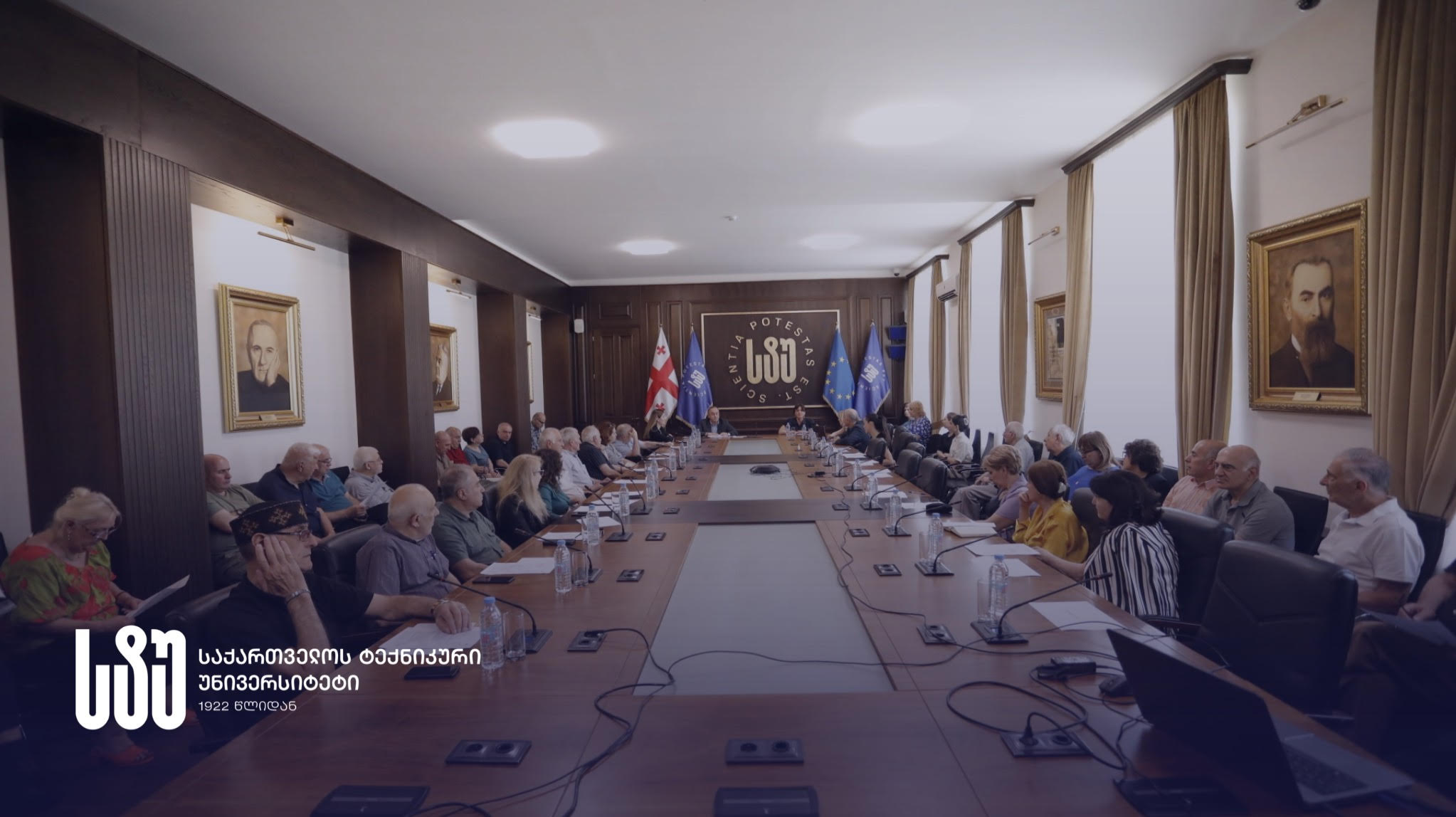
The Georgian Technical University hosted a plenary discussion on the relevance of intellectual property management at universities, in which Mindia Okujava, Acting Head of the Science and Technology Division of the Georgian Ministry of Education and Science, representatives of the Georgian Innovation and Technology Agency, the National Intellectual Property Center of Georgia, and the Shota Rustaveli National Scientific Institute of Georgia, foundation representatives, heads of GTU research institutes and deans of faculties participated.
Doctor of Medicine and Philosophy Guven Yalcintas of the University of Rochester (USA) participated in the panel discussion online.
The deputy rector of GTU in the field of science, Professor Tamar Lominadze, welcomed the participants of the panel discussion and wished them fruitful cooperation. As he noted, the purpose of the panel is to analyze the importance of intellectual property protection during university research and its commercialization and to identify best practices.
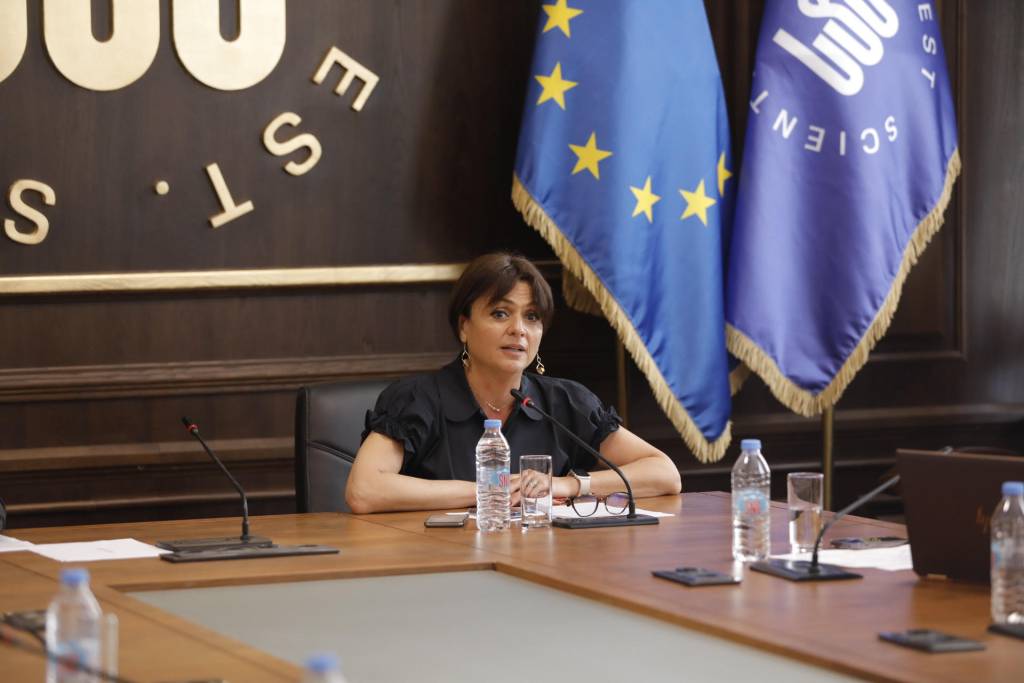
“The intellectual property management of universities and the panel meeting in this format - science, research, and innovation, is one of the most important topics directly related to rights protection. Scientists of the Georgian Technical University are engaged in progressive, innovative research in leading directions. Our scientific-academic staff actively cooperates with the largest international research organizations and centers, such as CERN in Switzerland, KEK and J-Parc in Japan, and FERMILAB in the USA; we collaborate with the Willich Center and the DAAD organization. We have close contacts with leading universities in Germany, Italy, France, and Europe.
Multifaceted international scientific collaboration is significant to us. Much attention is paid to university research as an important factor in the development of countries. Research is one of the important sources of funding for universities and researchers. The issue is important both for Georgian universities and internationally. The present panel discussion will allow us to assess the relevance of the problem of university research in the reality of Georgia, and we will also have the opportunity to hear the opinion of Guven Yalcintas, Doctor of Medicine and of Philosophy of the University of Rochester, about the best foreign experience. I would like to thank the discussion participants and wish them success”, said Tamar Lominadze.
According to Tamaz Urtmelidze, the moderator of the panel, head of the internal audit service of GTU, patent attorney, and lawyer, during the university research, it is essential to protect the rights to the acquired intellectual property (innovation).
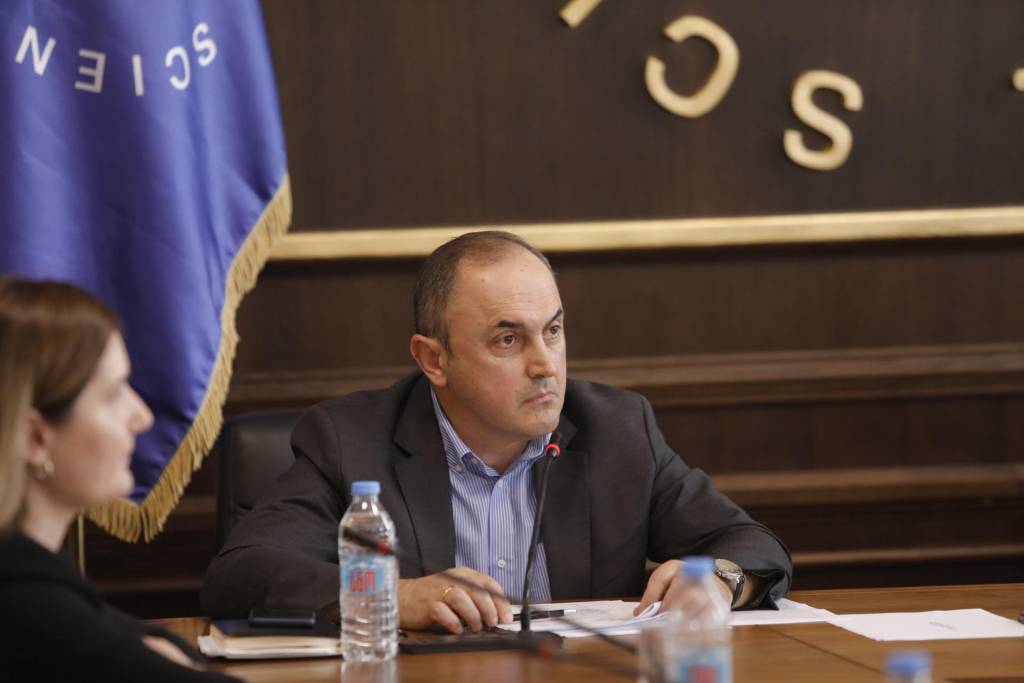
“The problem of intellectual property manifests itself even before the beginning of the research, when the rights and duties between the university and the researcher should be established, the share of the donor in the funding of the research, and other essential issues should be clarified. The research process may take several years, and its costs may become a significant capital investment. Donor organizations, university foundations, and private businesses that invest capital in new research must be guaranteed that their expenses will be justified and that no one can appropriate the research results. At this moment, the protection of intellectual property plays an important role as the most important legal guarantee”, noted Tamaz Urtmelidze.
For information, the protection of intellectual property at the Georgian Technical University is guaranteed by the statute, where in the subsection – “Mission” we read: “Training of competitive specialists with civic awareness, national and human values, offering new opportunities for research, education, and technology, promoting the construction of a knowledge-based economy in the country and conducting innovative activities for integration into the international ecosystem”; and the strategy of the university for 2022-2028 states: “Synthesis of professional and higher education, science, technology, and innovation, where quality professional and academic higher education, research and innovation play a decisive role, and the mentioned components have the most important influence in promoting the country’s economic growth, global competitiveness, and commercialization”.
Doctor of Medicine and Philosophy Guven Yalcintas of the University of Rochester (USA) participated in the panel discussion online.
The deputy rector of GTU in the field of science, Professor Tamar Lominadze, welcomed the participants of the panel discussion and wished them fruitful cooperation. As he noted, the purpose of the panel is to analyze the importance of intellectual property protection during university research and its commercialization and to identify best practices.

“The intellectual property management of universities and the panel meeting in this format - science, research, and innovation, is one of the most important topics directly related to rights protection. Scientists of the Georgian Technical University are engaged in progressive, innovative research in leading directions. Our scientific-academic staff actively cooperates with the largest international research organizations and centers, such as CERN in Switzerland, KEK and J-Parc in Japan, and FERMILAB in the USA; we collaborate with the Willich Center and the DAAD organization. We have close contacts with leading universities in Germany, Italy, France, and Europe.
Multifaceted international scientific collaboration is significant to us. Much attention is paid to university research as an important factor in the development of countries. Research is one of the important sources of funding for universities and researchers. The issue is important both for Georgian universities and internationally. The present panel discussion will allow us to assess the relevance of the problem of university research in the reality of Georgia, and we will also have the opportunity to hear the opinion of Guven Yalcintas, Doctor of Medicine and of Philosophy of the University of Rochester, about the best foreign experience. I would like to thank the discussion participants and wish them success”, said Tamar Lominadze.
According to Tamaz Urtmelidze, the moderator of the panel, head of the internal audit service of GTU, patent attorney, and lawyer, during the university research, it is essential to protect the rights to the acquired intellectual property (innovation).

“The problem of intellectual property manifests itself even before the beginning of the research, when the rights and duties between the university and the researcher should be established, the share of the donor in the funding of the research, and other essential issues should be clarified. The research process may take several years, and its costs may become a significant capital investment. Donor organizations, university foundations, and private businesses that invest capital in new research must be guaranteed that their expenses will be justified and that no one can appropriate the research results. At this moment, the protection of intellectual property plays an important role as the most important legal guarantee”, noted Tamaz Urtmelidze.
For information, the protection of intellectual property at the Georgian Technical University is guaranteed by the statute, where in the subsection – “Mission” we read: “Training of competitive specialists with civic awareness, national and human values, offering new opportunities for research, education, and technology, promoting the construction of a knowledge-based economy in the country and conducting innovative activities for integration into the international ecosystem”; and the strategy of the university for 2022-2028 states: “Synthesis of professional and higher education, science, technology, and innovation, where quality professional and academic higher education, research and innovation play a decisive role, and the mentioned components have the most important influence in promoting the country’s economic growth, global competitiveness, and commercialization”.
